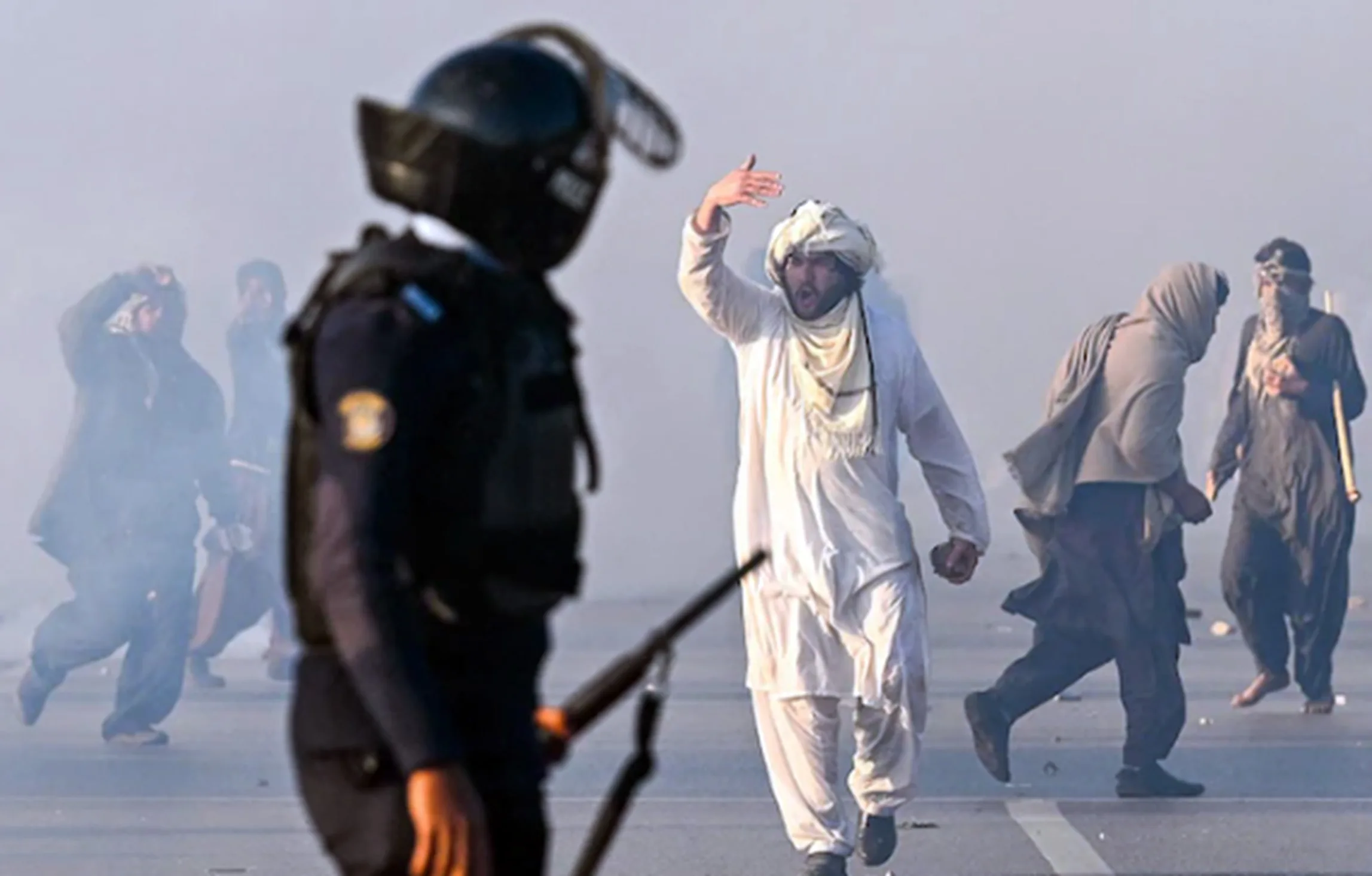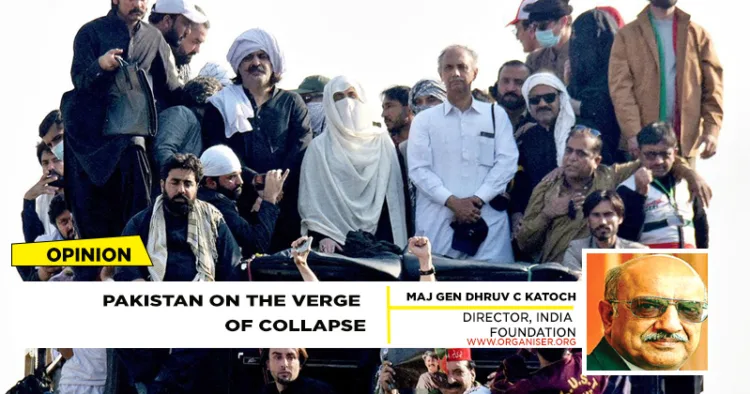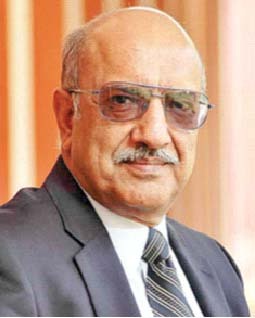On November 24, 2024, Pakistan’s political landscape was thrown into turmoil as the Pakistan Tehreek-e-Insaf (PTI) staged a protest dubbed the “Final Call.” It was announced by Bushra Bibi, wife of incarcerated leader Imran Khan, in a video message. Initiated by the incarcerated former Prime Minister Imran Khan, with key responsibilities assigned to Khyber Pakhtunkhwa CM Ali Amin Gandapur and former first lady Bushra Bibi, the rally was meant to be a clarion call for his release and a stand against what PTI alleges are the government’s undemocratic practices. However, the day turned into a stark display of state brutality and political suppression to stifle the opposition, revealing a troubling landscape of deceit and violence, which led to many prominent leaders leaving the scene prematurely.
Blame Game Begins
PTI’s intention to reach D-Chowk in Islamabad and hold a sit-in until Khan’s release was suddenly interrupted. This led to a blame game between PTI and the Government, marked by various incidents that hinted at a concerning level of manipulation by enforcement agencies, possibly supported by the Government.

The protest’s narrative took a dark turn when security forces claimed that five personnel from the Pakistan Levies were killed by a PTI supporter, who drove a car into them. The Pakistan Levies is a provincial paramilitary force that assists the police (where co-located) to maintain law and order. That was the handle that the Government wanted, and it used the incident to crackdown on the protestors brutally. This story, however, quickly unravelled as a fabrication, debunked by independent investigations and reports from human rights observers and journalists. The discrepancy between the state’s narrative and the reality on the ground exposed the Government’s objective to mislead and highlighted the erosion of trust in official communications .
Curtailing Press Freedom
Amidst this confusion, Matiullah Jan, a respected senior journalist known for his incisive reporting, found himself behind bars. He was falsely implicated under the stringent ‘The Control of Narcotic Substances Act, 1997’, purportedly for investigating the false claims made by the security forces. His arrest was a clear signal that the Freedom of Press in Pakistan is under severe threat. While Jan has been granted bail, his detention serves as a chilling reminder of the perils faced by those who seek to uncover the truth in a country where questioning the state’s narrative can lead to severe repercussions.
The response to the protesters was nothing short of brutal. Eyewitness accounts and videos circulated on social media depicted scenes of security forces unleashing live fire on unarmed demonstrators, actions which were disproportionate and aimed at quelling dissent through intimidation. The international community, alongside national voices, condemned these acts, seeing them as a stark departure from democratic norms and a move towards authoritarian control.
Clampdown on peaceful protesters
The situation deteriorated when the Army was granted sweeping powers to manage the unrest and regain control of D-Chowk, which was occupied by PTI demonstrators, leading to what many described as inhumane treatment of the protesters. The military’s heavy-handed tactics not only escalated the conflict but also painted a grim picture of state-sanctioned violence against its citizens. This military involvement has sparked a debate about the role of the Armed Forces in civilian governance and the implications for Pakistan’s democratic future. PTI officially claimed that it lost 12 demonstrators, who peacefully protested at D-Chowk in the confrontation. However, this claim was refuted by the Interior Ministry , which demanded proof to substantiate the assertion.
Endorsement from Extremist
In an unexpected twist, the Tehreek-e-Taliban Pakistan (TTP) voiced support for PTI, offering to back them if they were willing to escalate their resistance against the Government. This endorsement from an extremist group further complicates the political narrative. It hints at a dangerous convergence of political protests with militant agendas, potentially leading to further destabilisation of an already volatile region. It must be said, however, that on earlier occasions, the PTI has attempted a rapprochement between the government and the TTP.
Adding to the crescendo of dissent, a high-ranking civil service officer resigned in protest against the Government’s harsh measures.
The tumultuous events following the PTI’s “Final Call” protest on November 24, 2024, underscore a disturbing trend in Pakistan. These events mirror the paths taken by Bangladesh and Sri Lanka, where weak democracies have been challenged by state overreach and the suppression of dissent. The Government’s response to the peaceful protest seeking justice and the release of Imran Khan was high-handed. In addition to excessive force, the government used deceit against its citizens to suppress their voices.
The fabricated narrative about the deaths of security personnel, the arrest of journalist Matiullah Jan and the brutal response to unarmed protesters are stark indicators of a democracy in peril. The military’s involvement, the endorsement from extremist groups like the TTP, and the resignation of a civil servant in protest paint a picture of a nation where the Government appears more inclined to uproot opposition through force rather than dialogue. This scenario not only jeopardises the democratic fabric of Pakistan but also calls into question the integrity of its institutions, suggesting that the country might be on a path where justice is sought not through the ballot but through the uprooting of what many perceive as ineligible and oppressive commands.
(Views are personal)




















Comments